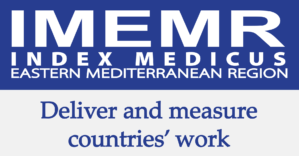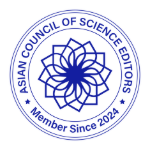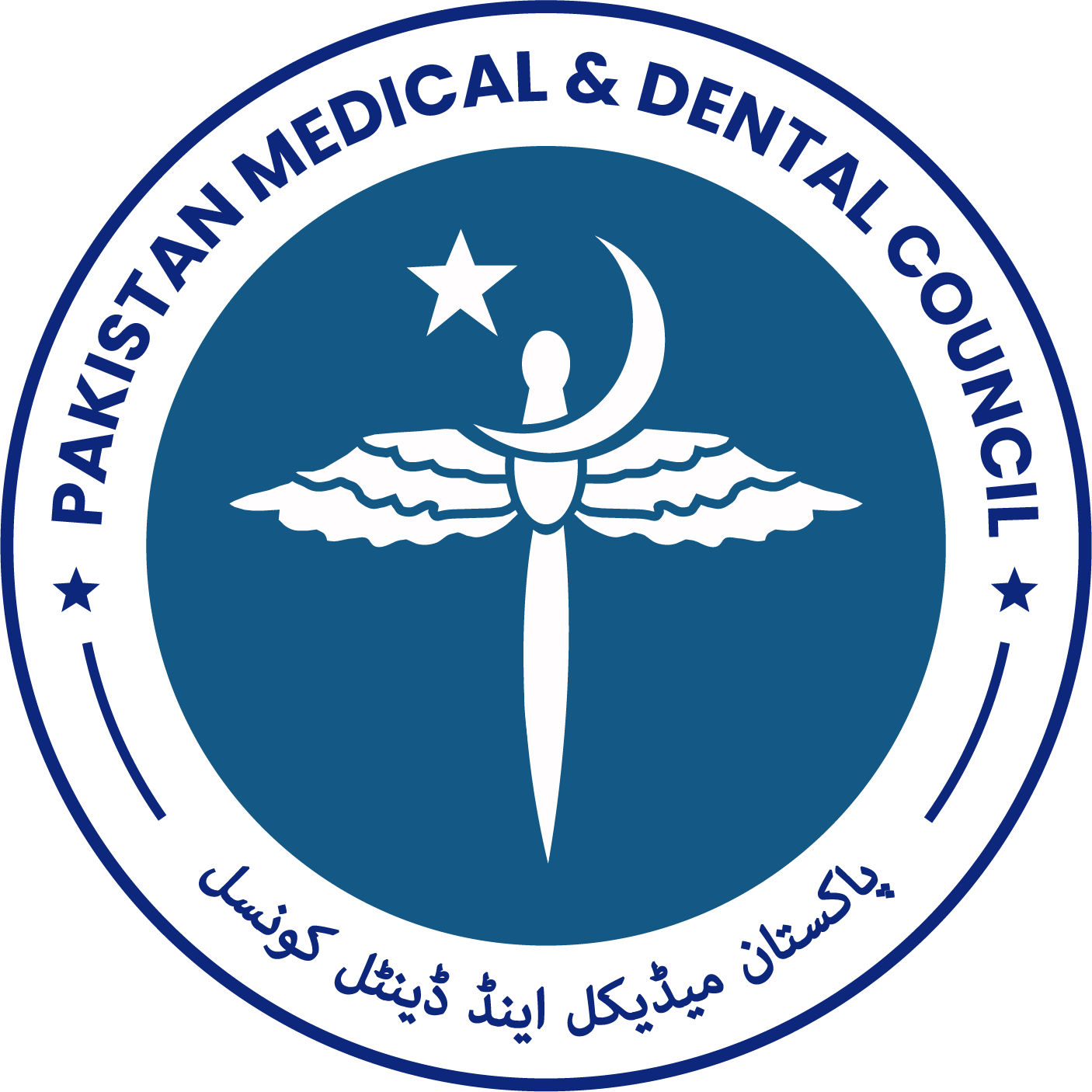Parental Role in Recognition, Prevention and First Aid Management of Foreign Body Aspiration amongst Children
DOI:
https://doi.org/10.53685/jshmdc.v3i2.127Keywords:
Foreign body aspiration, Prevention, First aid managementAbstract
Background: Foreign body aspiration (FBA) is a commonly observed, fatal but preventable condition in children. To reduce the incidence of FBA, it is essential to provide parents with knowledge and guidelines regarding the prevention and management of FBA.
Objectives: To assess parental knowledge and parental role in the prevention and first aid management of foreign body aspiration in children.
Methods: A descriptive cross-sectional study was carried out at Mayo Hospital, Lahore from January 2019 to September 2019. After IRB approval and informed consent, 151 parents were enrolled through convenient sampling. Data were recorded in a structured questionnaire and analyzed through SPSS version 26.
Results: Breathlessness and vomiting were recognized as symptoms of FBA by 49.7% & 7.3% of parents respectively. Hand clutched to throat, color & voice change were recognized as signs by 6.6 %, 9.9 % &10.6 % of the parents. As a first aid measure, 66.2% of individuals knew about back slaps, while only 2% were aware of abdominal thrusts. Literate parents were well aware of the facts that children under the age of three should not consume seeds, hazelnuts, and hard nuts and the child should not laugh or talk while eating compared to illiterate parents (p<0.05)
Conclusion: The majority of the parents are not well aware of signs, symptoms, preventive measures and first aid measurements regarding FBA.
References
Behboudi F, Pouralizadeh M, Yeganeh MR, Roushan ZA. The effect of education using a mobile application on knowledge and decision of Iranian mothers about prevention of foreign body aspiration and to relieve choking in children: A quasi-experimental study. J. Pediatr. Nurs. 2022; 62: e77-e83. doi:10.1016/j.pedn.2021.07.007 DOI: https://doi.org/10.1016/j.pedn.2021.07.007
Ding G, Wu B, Vinturache A, Cai C, Lu M, Gu H. Tracheobronchial foreign body aspiration in children: A retrospective single-center cross-sectional study. Medicine. 2020; 99(22): e20480.doi: 10.1097/MD.0000000000020480 DOI: https://doi.org/10.1097/MD.0000000000020480
Wu X, Wu L, Chen Z, Zhou Y. Fatal choking in infants and children treated in a pediatric intensive care unit: A 7- year experience. Int J Pediatr Otorhinolaryngol. 2018; 110: 67-69. doi: 10.1016/j.ijporl.2018.04.026 DOI: https://doi.org/10.1016/j.ijporl.2018.04.026
Gurevich Y, Sahn B, Weinstein T. Foreign body ingestion in pediatric patients. Current opinion in pediatrics. 2018; 30(5): 677- 682. doi:10.1097/ MOP.0000000000000670 DOI: https://doi.org/10.1097/MOP.0000000000000670
Khan T, Mahboob H, Tahir I, Nasir M, Ali A, Abbas I, et al. Foreign Bodies Presentation at Otorhinolaryngology Emergencies in A Tertiary Care Hospital. Annals of KEMU. 2018; 24(S): 893-896. doi:10.21649/akemu.v 24iS.2601
Al-Qudehy Z, Al-Sheif H, Al-Qudaihi G. Parental knowledge of foreign body aspiration: A comparative study between Saudis and other nations. J Otolaryngol ENT Res. 2015; 2(1): 00008. DOI: https://doi.org/10.15406/joentr.2015.02.00008
Cramer N, Jabbour N, Tavarez MM, Taylor RS. Foreign Body Aspiration. 2022. In: StatPearls. Treasure Island (FL): StatPearls Publishing; 2022.
Mahmud A, Mohammed Y, Aluko A. Knowledge of foreign-body aspiration in children among caregivers in Kano Nigeria. African Journal of Trauma. 2017; 6(2): 42- 46. doi: 10.4103/ajt.ajt_11_18 DOI: https://doi.org/10.4103/ajt.ajt_11_18
Brkic F, Umihanic S, Altumbabic H, Ramas A, Salkic A, UmihanicS,,et al. Death as a consequence of foreign body aspiration in children. Medical Archives. 2018; 72(3): 220-223. doi: 10.5455/medarh.2018.72.220- 223 DOI: https://doi.org/10.5455/medarh.2018.72.220-223
Montana A, Salerno M, Feola A, Asmundo A, Di Nunno N, Casella F, et al. Risk Management and Recommendations for the Prevention of Fatal Foreign Body Aspiration: Four Cases Aged 1.5 to 3 Years and Mini-Review of the Literature. Int J Environ Res Public Health. 2020; 17(13):
doi: 10.3390/ijerph17134700 DOI: https://doi.org/10.3390/ijerph17134700
Na'ara S, Vainer I, Amit M, Gordin A. Foreign Body Aspiration in Infants and Older Children: A Comparative Study. Ear Nose Throat J. 2020; 99(1): 47-51. doi: 10.1177/0145561319839900 DOI: https://doi.org/10.1177/0145561319839900
Cui Y, Cui X, Yu T, Zhu Z, Wang X. Importance of patient history in diagnosis of foreign body aspiration in children: Two case reports. Medicine. 2019; 98(17). e15326. doi: DOI: https://doi.org/10.1097/MD.0000000000015326
1097/MD.0000000000015326
Antón-Pacheco JL, Martín-Alelú R, López M, Morante R, Merino-Mateo L, Barrero S, et al. Foreign body aspiration in children: treatment timing and related complications. Int. J. Pediatr. Otorhinolaryngol. 2021; 144: 110690. doi: 10.1016/j.ijporl.2021.110690 DOI: https://doi.org/10.1016/j.ijporl.2021.110690
Goyal S, Jain S, Rai G, Vishnu R, Kamath GS, Bishnoi AK, et al. Clinical variables responsible for early and late diagnosis of foreign body aspiration in pediatrics age group. J. Cardiothorac. Surg. 2020; 15(1): 1- 6. doi: 10.1186/s13019-020-01314-9 DOI: https://doi.org/10.1186/s13019-020-01314-9
Alshehri KA, Alharbi AA, Yaghmoor BE, Salman AK, Alaydarous SA, Abdalwassie LK, et al. Awareness of the first aid management of foreign body aspiration among students: A cross-sectional study. J Educ Health Promot. 2019; 8: 220. doi: 10.4103/jehp.jehp_306_19. DOI: https://doi.org/10.4103/jehp.jehp_306_19
Bentivegna KC, Borrup KT, Clough ME, Schoem SR. Basic choking education to improve parental knowledge. Int. J. Pediatr. Otorhinolaryngol. 2018; 113: 234-239. doi: 10.1016/j.ijporl.2018.08.002 DOI: https://doi.org/10.1016/j.ijporl.2018.08.002
Habeeb KA, Alarfaj G. Saudi parents awareness regarding burn, choking, and drowning first aid in children. J Family Med Prim Care. 2020; 9(3): 1370-1375. doi: 10.4103/jfmpc.jfmpc_1064_19 DOI: https://doi.org/10.4103/jfmpc.jfmpc_1064_19
Mohammed HO, Wassif GO, Hakim SA, Moustafa ME. Frequency of unintentional home injuries in children under five years and its relation with environmental risk factors, Cairo, Egypt. Egypt J Community Med. 2019; 37(3): 93-102. doi: 10.21608/ejcm. 2019.43376 DOI: https://doi.org/10.21608/ejcm.2019.43376
Lin A, Chan LCN, Hon KLE, Tsui SYB, Pang KKY, Cheung HM, Leung AKC. Magnetic Foreign Body Ingestion in Children: The Attractive Hazards. Case Rep Pediatr. 2019; 2019: 3549242.
doi:10.1155/2019/3549242 DOI: https://doi.org/10.1155/2019/3549242
Elfeshawy R, ElSobky FA, Mohamed FK, Darweesh HA. Effect of health education program-based on a health belief model on mothers’ knowledge and practices regarding choking prevention and management for their children. Tanta Med. J. 2022; 25(2): 235-257.doi: 10.21608/TSNJ.2022.243373 DOI: https://doi.org/10.21608/tsnj.2022.243373
Almutairi AT, Alharbi FS. Parental knowledge and practices toward foreign body aspiration in children in the Al Qassim region of Saudi Arabia. J Family Med Prim Care. 2021; 10(1): 199-204. doi: 10.4103/jfmpc.jfmpc_1500_20 DOI: https://doi.org/10.4103/jfmpc.jfmpc_1500_20
Downloads
Published
How to Cite
Issue
Section
License
Copyright (c) 2022 Fariha Salman, Hira Javaid, Sadia Ismail, Sadia Salman

This work is licensed under a Creative Commons Attribution-NonCommercial 4.0 International License.
You are free to:
- Share — copy and redistribute the material in any medium or format
- Adapt — remix, transform, and build upon the material
- The licensor cannot revoke these freedoms as long as you follow the license terms.
Under the following terms:
-
Attribution — You must give appropriate credit, provide a link to the license, and indicate if changes were made. You may do so in any reasonable manner, but not in any way that suggests the licensor endorses you or your use.
-
Non Commercial — You may not use the material for commercial purposes.
-
No additional restrictions — You may not apply legal terms or technological measures that legally restrict others from doing anything the license permits.





















